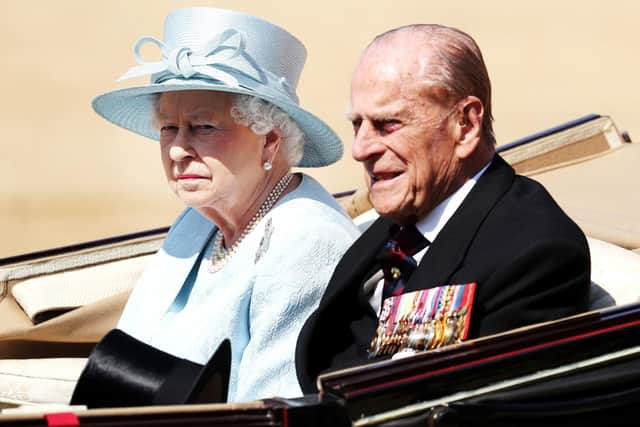Challenge to secrecy hearing on Philip will
and live on Freeview channel 276
Philip, the nation’s longest-serving consort, died aged 99 on April 9 last year, two months before he would have turned 100.
After the death of a senior member of the royal family, it has been convention for over a century that an application to seal their will is made to the president of the Family Division of the High Court.
Advertisement
Hide AdAdvertisement
Hide AdThis means the wills of senior members of the royal family are not open to public inspection in the way a will would ordinarily be.


The current president, Sir Andrew McFarlane, heard legal argument from lawyers representing Philip’s estate and the attorney general – who represents the public interest in such matters – at a private hearing in July.
The Guardian is now challenging the decision to hold that hearing in private, arguing that it was “disproportionate and unjustified”.
Court hearings are usually held in public, in line with the principle of “open justice”, unless there are “exceptional” reasons to exclude members of the press and public.
Advertisement
Hide AdAdvertisement
Hide AdIn grounds of appeal filed with the Court of Appeal, lawyers for the newspaper argue the High Court judge “erred in law” in denying the media an opportunity to make representations as to whether the hearing of the application to seal up the will should go ahead in private, with no representatives of the press allowed to attend.
The Court of Appeal has granted The Guardian permission to appeal, but there is no indication yet of when the case will be heard.
There is no challenge against the decision to seal the will.
In the grounds, the newspaper’s lawyers say: “The High Court erred in failing to consider any lesser interference with open justice than a private hearing from which accredited members of the press should be excluded.
Advertisement
Hide AdAdvertisement
Hide Ad“As a result, the decision to hear the application to seal up the will in private was disproportionate and unjustified.”
They said there was a “strong public interest in transparency” in the application to seal up the will, as the Court of Appeal criticised the process for sealing up wills as not being transparent enough in 2008, when it considered a challenge in relation to the Queen Elizabeth the Queen Mother’s will.